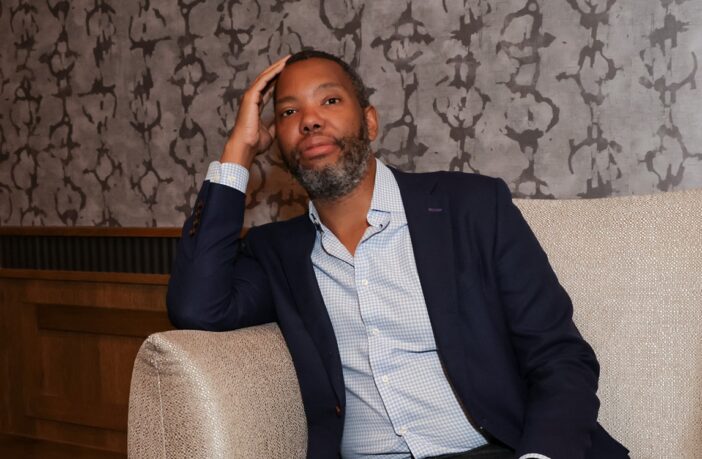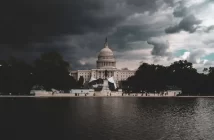On Tuesday, the long line snaking across Harlem’s 125th Street leading to the world-famous Apollo Theater might make passersby think Travis Scott hit New York City for the night. Upon closer inspection, the sold-out crowd was cued up for a night of ideas over beats and rhymes. Author-intellectual Ta-Nehisi Coates just released his fifth book, The Message: a thinking man’s travelogue through South Carolina, Senegal and Israel in search of embracing some difficult truths.
Since the ginormous success of Between the World and Me—his 2015 breakthrough that led to an Apollo-staged celebrity reading, which morphed into a 2020 HBO special—Coates has written Marvel Comics story arcs for Black Panther and Captain America, an as-yet-unproduced Superman screenplay, and The Water Dancer, a bestselling novel scheduled to become a feature film. He’s also left behind his launching pad of The Atlantic magazine to teach intermittently at his alma mater, Howard University.
The Apollo showered Coates with a warm round of applause after a heartfelt introduction from the venue’s curator, Kamilah Forbes, a former HU classmate and friend. Following a contentious CBS Mornings interview that set social media on fire, Ta-Nehisi Coates felt at home—rubbing the famous tree stump and sitting for a public Q&A with MSNBC host Ayman Mohyeldin. The spellbound audience sat with copies of The Message in their laps, distributed at the theater’s entrance.
“I got my first adult passport when I was 37,” Coates told everyone, describing his premiere trip to Africa described in The Message. “There I was, in Dakar, on the other tip of the Atlantic Ocean. I was not prepared for the emotion of seeing that and looking out like that. I’m looking out on the ocean and thinking about all of my great-great-great grandmothers who were carried off. And all they ever wanted was to go back home. There was something triumphant about the fact that I was carrying them in me, and I was back home. I saw ghosts. [But] I didn’t see enough of the people. That’ll be the second trip.”
Coates described The Message, a book about “how our stories expose and distort our realities,” as an essay collection expressly written for young writers. He traveled to Columbia, South Carolina, for a firsthand view of how the city’s more liberal-leaning residents fought against the book-banning of Between the World and Me—then wrote about it. He traveled to Senegal as a reckoning with his ancestors and the mother continent—then wrote about it. The biggest essay of The Message deals with ten days Coates spent in East Jerusalem and the West Bank, contending with Palestinian segregation, its similarities to the Jim Crow system of America and the moral wrongness of global media silencing the Palestinian point of view.
“I can’t help but be proud of the fact that the first Black woman running for president is from Howard University, but there’s a price to be paid for this,” Coates warned in his wrap-up. “This is our own internal morality. People’s families are being bombed literally right now. One of the great tragedies of being in Israel is, what does ‘never again’ truly mean? And that’s a question for us too. We gotta hold folks accountable. I don’t think [the Democratic National Convention]gets to take Shirley Chisholm and Fannie Lou Hamer and then bankroll those bombs to be dropped on people.”
As CBS started airing the vice-presidential debate, Coates left the Message-wielding Apollo audience with this: “I just hope we’re not taking the benefits of heritage, the benefits of legacy, and avoiding the responsibility of it.”



